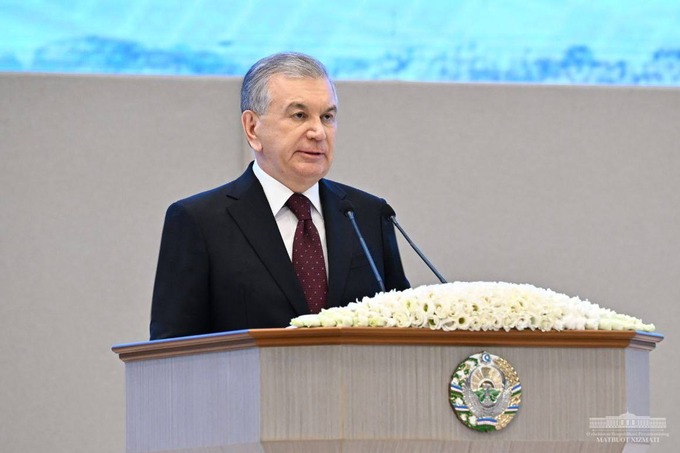Central Asian gas producers Turkmenistan, Kazakhstan and Uzbekistan are discussing a shared cut in gas supplies to China, as a result of the coronavirus pandemic's impact on demand, Uzbekneftegaz CEO Mekhriddin Abdullaev told S&P Global Platts Tuesday.
"China requested a cut, but indicated that any reduction in gas supplies would be carried out proportionally between Turkmenistan, Kazakhstan and Uzbekistan," Abdullaev said in emailed comments.
"A coordinating committee of the three Central Asian countries that supply gas to China is discussing exact volumes. A decision has not yet been made," he added.
Chinese demand for gas has fallen this year as a result of measures introduced to combat the spread of the coronavirus. In March Kazakhstan said it cut natural gas supplies to China by 20%-25% after PetroChina issued a force majeure notice on imports.
The three Central Asian countries ship gas to China via the Central Asia–China gas pipeline network, which has a design capacity of 55 Bcm a year.
Uzbekistan supplies around 10 Bcm/year of gas to China, UNG said. Chinese Customs data indicated that in 2019 Kazakhstan exported 7.1 Bcm, and Turkmenistan 33.2 Bcm.
Development plans
In the longer term Uzbekistan is planning to reduce gas exports to almost zero over the next decade, shifting its focus to processing gas domestically.
"Our goal is to process gas in Uzbekistan and maximize returns along the entire value chain for gas-based products," Abdullaev said.
As part of these plans, Uzbekneftegaz is investing in two major downstream gas projects -- the Oltin Yo'l gas to liquids project in Southern Uzbekistan, and expansion of the Shurtan gas chemical complex. Oltin Yo'l plant has a planned processing capacity of 3.6 Bcm/year of natural gas and is slated for completion later this year. An estimated investment of $3.61 billion, the project includes Chinese, Russian and Japanese investors.
"In addition, feasibility studies are being carried out at two potential plants: one based on methanol olefin technology and the other based on ammonia and urea production," Abdullaev said.
Uzbekistan produced around 60 Bcm of gas last year and is planning to ramp up production by 20% by 2030.
"The fulfillment of this goal depends on the results of major exploration work that we are carrying out together with foreign investors," Abdullaev said.
Increasing foreign investment in the oil and gas sector is part of a wide-ranging economic reform program introduced since President Shavkat Mirziyovev took office in 2016.
"Our main priority is exploration, which will give us a clearer picture of hydrocarbon reserves. We are working on several gas exploration deals with international oil companies, including European majors such as Total and Eni, and the alliance with BP and Socar," Abdullaev said.
He added that the company planned to sign further agreements with BP and Socar on exploration at a field in the Ustyurt region, close to the Aral Sea, in the near future. The companies previously signed preliminary agreements on joint exploration work in the area.
Domestic pricing
Abdullaev said that an interdepartmental tariff commission has been set up to analyze global oil prices and make calculations that would have a direct impact on establishing new domestic prices for Uzbekneftegaz's oil and gas condensate.
He added that the coronavirus pandemic and measures taken to limit the spread of the virus had led to a drop in domestic demand for motor fuel.
"Demand for gasoline in the last 10 days of March and throughout April fell by 60-70% in the republic. In particular it fell by 70-80% in the city of Tashkent, and in other regions by 60-65%," Abduallaev said. He added that demand for diesel rose during the same period, due to a rise in agricultural activity.












